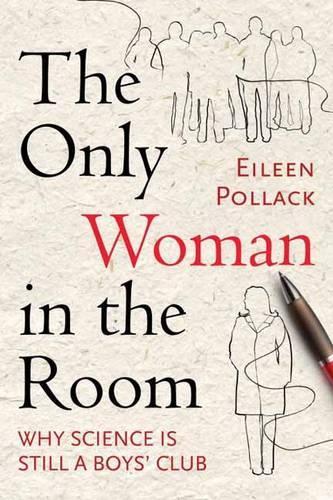
The Only Woman in the Room: Why Science Is Still a Boys' Club
(Paperback)
Publishing Details
The Only Woman in the Room: Why Science Is Still a Boys' Club
By (Author) Eileen Pollack
Beacon Press
Beacon Press
1st September 2018
8th September 2016
United States
Classifications
General
Non Fiction
Gender studies: women and girls
Sociology: work and labour
500.82
Physical Properties
Paperback
288
Width 153mm, Height 228mm, Spine 19mm
397g
Description
Named one of the notable nonfiction books of 2015 by The Washington Post A bracingly honest exploration of why there are still so few women in the hard sciences, mathematics, engineering, and computer science In 2005, when Lawrence Summers, then president of Harvard, asked why so few women, even today, achieve tenured positions in the hard sciences, Eileen Pollack set out to find the answer.
Reviews
Hard-hitting, difficult to read, and impossible to put down.
Kirkus Reviews
Honest, readable, and brave.
Library Journal
Offering an engrossing look at the barriers still facing women in science...Pollack draws attention to this important and vexing problem with a personal narrative, beautifully written and full of important insights on the changes needed to make those barriers crumble...Any young woman or man on the way to college to major in science will find great lessons in this book.
Washington Post
Her memoir rings authentic, its lessons essential. A bitter pill to swallow but a vital addition to the important and frustratingly ongoing discussion about gender equity.
Poornima Apte, Booklist
The Only Woman in the Roomis absolutely brillianteven a sleeping pill and head cold couldnt stop me from reading it through the night. Pollacks story revealsso muchI want to give it to my children, my husband, my older sister (a biologist), and every physicist I know, perhaps with key passages underlined. And especially, young women in science: read this book!
Meg Urry,President of the American Astronomical Society, and former chair of the Department of Physics at Yale University
With excruciating candor Eileen Pollack details how society's relentless message that girls lack the intrinsic aptitude for high-level math and physics leaves young women without the confidence to stay the course in the brutally competitive environment of high-powered science. This is a riveting, insider's-account of how unconscious biases make a mockery of meritocracy, why women's equality remains elusive, and why Larry Summers was so wrong.
Nancy Hopkins, Amgen Inc. Professor of Biology (emerita), Massachusetts Institute of Technology
In Eileen Pollacks vivid description of the issues facing women in science, I immediately saw the truth of what I have lived. Pollack is convincing in showing how the obstacles for women in the U.S. are erected by our culture. In the 1960s my mother had to put up with exclusionary rules that kept her out of a career in science. You would think things might have gotten better for my generation, and for the current generation. But they have not. Eileen Pollack courageously and honestly examines her own life and shows us why.
Carol Greider, winner of the Nobel Prize in Physiology or Medicine and Daniel Nathans Professor and Chair of the Department of Molecular Biology and Genetics at Johns Hopkins University
My remarks on women and science generated much heatif they helped stimulate Eileen Pollacks introspections and reflections, they shed light as well. I certainly understand many aspects of the issue better for reading Pollacks work.We all want great opportunities for all, and as she demonstrates, the world has a long way to go.
Lawrence H. Summers, Charles W. Eliot University Professor and President Emeritus, Harvard University, and former Secretary of the Treasury
Author Bio
Eileen Pollack is the author of the novels Breaking and Entering (a New York Times Editor's Choice selection) and Paradise, New York, as well as two collections of short fiction, an award-winning book of nonfiction, and two creative-nonfiction textbooks. Her work has appeared in Best American Essays and Best American Short Stories. She is a professor on the faculty of the Helen Zell MFA Program in Creative Writing at the University of Michigan. She divides her time between Manhattan and Ann Arbor, Michigan.
